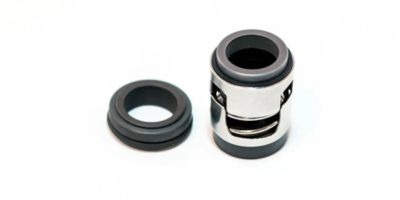Mechanical seals are an essential component in many industrial applications, including pumps, compressors, and mixers. They prevent the leakage of fluids and gases from the equipment, ensuring safe and efficient operation. However, not all mechanical seals are created equal. There are two main types of mechanical seals: API and non-API. In this article, we will explore the differences between these two types of mechanical seals and their respective advantages and disadvantages.
API Mechanical Seals
API (American Petroleum Institute) mechanical seals are designed and manufactured according to strict industry standards. These seals are commonly used in the oil and gas industry, where they must withstand harsh operating conditions, high pressures, and temperatures. API mechanical seals are also used in other industries, such as chemical processing, power generation, and water treatment.
One of the main advantages of API mechanical seals is their reliability. They are designed to meet specific performance criteria, such as leakage rates, temperature limits, and pressure ratings. API mechanical seals are also tested rigorously before they are approved for use, ensuring that they meet the highest quality standards.
Another advantage of API mechanical seals is their interchangeability. Because they are manufactured to standard specifications, API mechanical seals can be easily replaced with other API seals of the same size and configuration. This makes maintenance and repair of equipment much easier and more efficient.
Non-API Mechanical Seals
Non-API mechanical seals, on the other hand, are not manufactured to any specific industry standard. They are designed and manufactured by individual companies according to their own specifications. Non-API mechanical seals are commonly used in applications where the operating conditions are less severe than those found in the oil and gas industry.
One advantage of non-API mechanical seals is their flexibility. Because they are not bound by industry standards, non-API mechanical seals can be customized to meet specific application requirements. This can result in better performance and longer seal life.
However, one disadvantage of non-API mechanical seals is their lack of standardization. Because there are no industry standards to follow, non-API mechanical seals can vary widely in terms of quality and performance. This can make it difficult to compare different seals and ensure that they meet the required specifications.
Conclusion
In summary, API and non-API mechanical seals have their respective advantages and disadvantages. API mechanical seals are designed and manufactured to strict industry standards, ensuring reliability and interchangeability. Non-API mechanical seals, on the other hand, offer greater flexibility but may lack standardization. When selecting a mechanical seal, it is important to consider the specific application requirements and choose a seal that meets those requirements.
